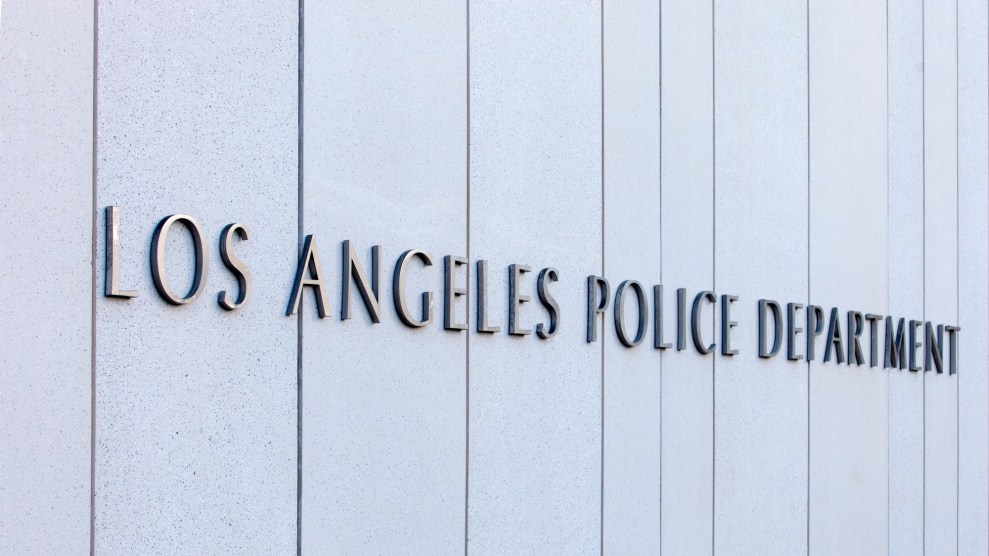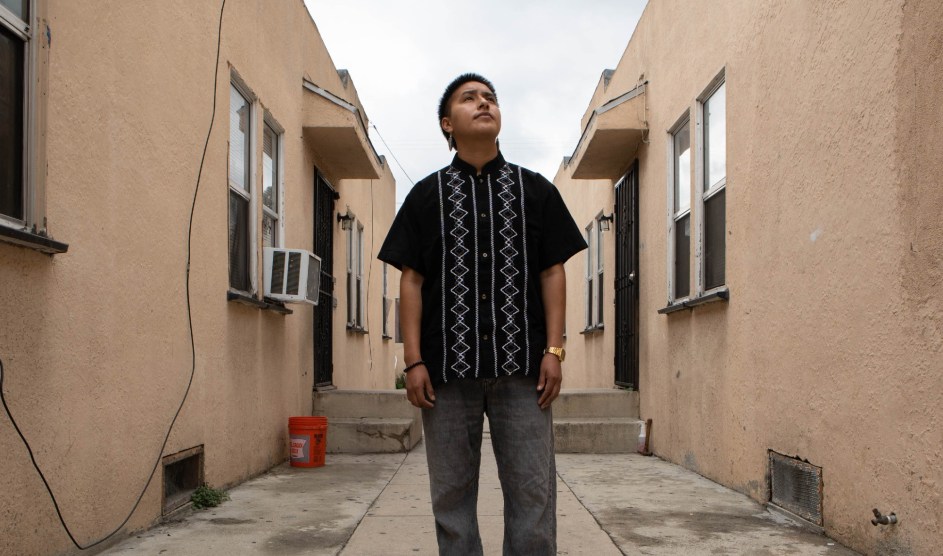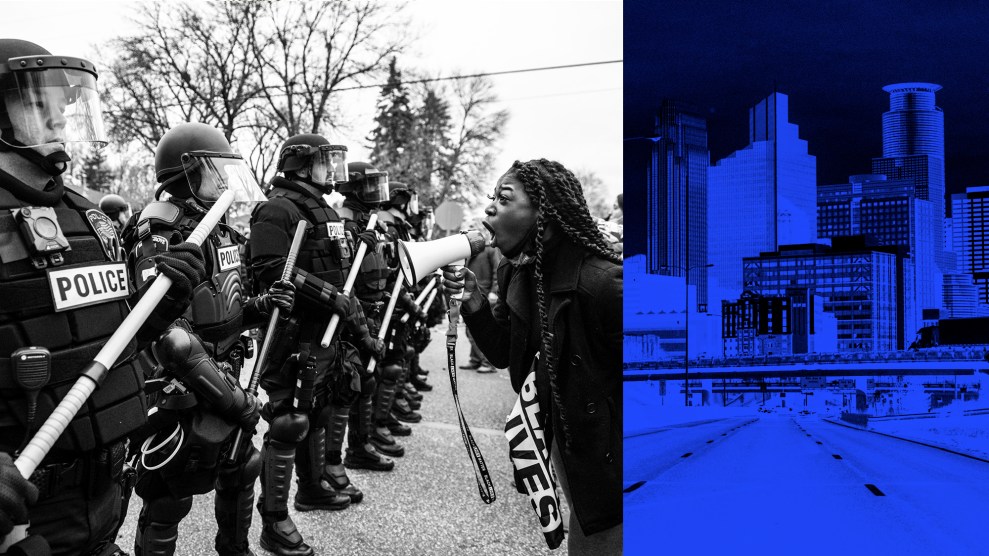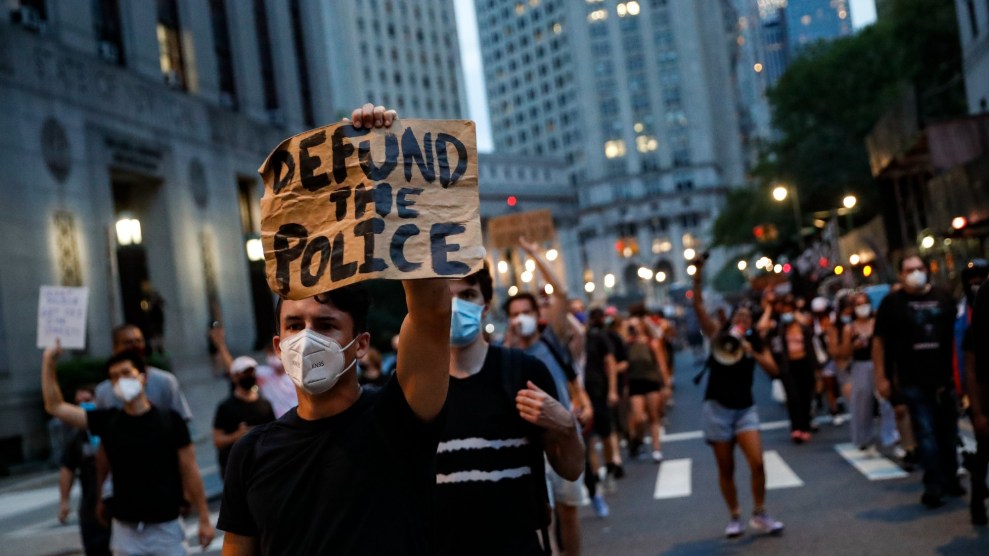
steinphoto/ Getty Images
On January 3, Los Angeles police officers killed 31-year-old Keenan Anderson, a Washington, DC, high school English teacher, who was visiting family. He went into cardiac arrest after being repeatedly tased by police responding to a traffic accident, according to body camera footage and his family’s account. Newly released body camera footage shows LAPD officers restraining and tasing Anderson, who can be heard begging for help. At one point in the violent encounter, Anderson, the cousin of Black Lives Matter co-founder Patrisse Cullors, is heard saying, “They’re trying to George Floyd me.”
Anderson’s death has reignited calls to defund the LAPD, whose large budget and spending have long been under scrutiny. The department spends tens of millions annually on helicopters, creating one of the largest helicopter fleets of any local law enforcement agency in the world, despite little evidence of their effectiveness. According to one recent report, the LAPD’s $1.8 billion in local funding last year was 29 times higher than the city’s entire budget for housing. And local activists are demanding change. Check out my colleague Madison Pauly’s recent tribute to a billboard campaign that bravely called attention to the department’s funding data.
Since the death of George Floyd in 2020, many have called for police funds to be reallocated to social programs, such as housing and public transportation. But in the years since, conservatives have hit back with crime panic; defunding quickly became a dirty word for Democrats. More from Madison:
By this fall, the word “defund” had become politically radioactive, according to a Vox analysis of polling data, though significant majorities of US adults still supported the policy changes most activists mean when they talk about defunding the police. Poll respondents were broadly in favor of diverting some police funding to education, anti-poverty measures, and housing, as well as routing some 911 calls away from the cops. But pollsters who used the word “defund” when asking voters about such policies found that support plummeted.
I’m not sure where the conversation goes from here—and I’m not exactly optimistic. But Keenan Anderson’s death demands accountability. As Patrisse Cullors from BLM told the Guardian, “My cousin was asking for help, and he didn’t receive it. He was killed…My cousin was scared for his life. He spent the last 10 years witnessing a movement challenging the killing of Black people. He knew what was at stake and he was trying to protect himself. Nobody was willing to protect him.”














